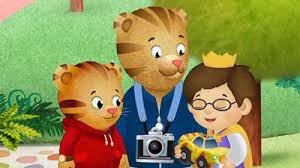As we approach the summer months and the end of the school year, some of us face different challenges. Some parents worry they will lose the ability to maintain the routine their child has learned all year, while others fear they won’t keep their children engaged as much as they were in school. Don’t panic!
There are many fun, creative, and, most importantly, affordable ways to keep your little ones engaged and stimulated—all while still learning—this summer. Maintaining these habits will ensure your child not only has a great summer with you but also prepares them for the next school year.
1. Opt for toys that are fun and educational
Learning toys are the perfect way for your child to grasp new skills through play. These types of activities can be simple and open-ended, like block stacking, alphabet and counting games, and motor skill practice. However, the key to making littles more interested is using toys that present these concepts in new and exciting ways. If you need some ideas, Melissa and Doug have some great creative and instructive toys that kids actually reach for.
2. Maintain a routine—but make it interesting
Children thrive when they have structure in their everyday lives. It’s recommended that kids have a routine in order to feel safe and properly engage in learning. There is always room for spontaneity, especially during the summer when their schedules are freed up, but it’s important for them to at least experience some predictability every day.
For instance, they can eat their meals simultaneously every day but a few days out of the week. You can turn lunchtime into a picnic so it doesn’t become monotonous. You can make them an active participant in their daily routine by using a kid-friendly calendar. This choice gives them more control over their day and excites them about the activities ahead.
3. Explore your city
Take advantage of the sights that surround you wherever you live. Local museums, zoos, art galleries, and libraries often have special events for children during the summer. Play museums are also rising in popularity, which allows your little one to get out of the house and interact with other children. Each place you visit is an opportunity to create a lifelong memory with your child while they learn about the world around them. These types of social experiences are an equally important part of a child’s education.
4. Go on a nature walk
Let nature be your kid’s teacher this summer (with you present, of course!). Taking your little one to a walking trail, park, or hike is the perfect way for them to learn about science and animal life. You could embark on a scavenger hunt or collect flowers, leaves, and twigs to take home for an art project. You could also play a nature podcast on your walk so they can learn while getting sun and exercise.
5. Conduct an experiment or art project
Turn a room in your house into a science lab or art workshop and watch your kiddo learn through various projects. Store a few science and craft kits at home and pull them out during those extra hot days. You could follow along with science or art educators on YouTube so you and your child can learn something new!
Summer should be fun for both you and your child. Having fun does not mean you can’t continue to learn and make core memories with your little one. The most important thing is to have fun and enjoy the summer break! There are always opportunities for advancing a child’s knowledge, even in the most unlikely places.
Ms. Alexander
Ms. Cerrato
Mrs. Okoro
Mrs. Rodriguez









